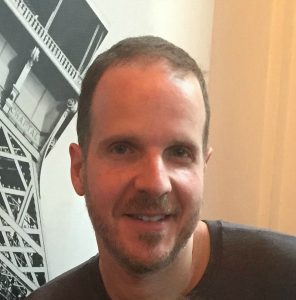
Michael Abitbol
Native New Yorker and Senior Vice President of Business and Legal Affairs of Digital at Sony/ATV Music Publishing, Michael Abitbol, has more in common with Canadians than one might think.
First, he’s an avid ice hockey fan who has visited many hockey-related destinations in Canada. Second, he’s armed with a track record of fighting for the rights of songwriters and publishers like his industry colleagues across the border.
Abitbol was recently appointed to CMRRA’s Canadian Publishers Committee (CPC), established to oversee and advance the interests of CMRRA’s publisher clients in Canada.
“I’m really looking forward to working with CMRRA to help ensure writers and publishers secure the best rates possible,” he said.
“It’s so important. Music business revenue has rapidly shifted from physical products to digital offerings, so it’s imperative we establish rates that reflect the true value of our songs for our songwriters in the digital world.”
You could say Abitbol was born into the music industry. His father was a music manager and he grew up surrounded by music. At 16, he knew it was his calling too.

Taylor Swift
“When I told my dad I was going into the music business he said, ‘Don’t be a schmuck, go to law school – then, after law school you can go into the music business, and at least you will have a law degree if the music thing doesn’t work out.’”
A philosophy major at college who kept busy playing in bands and DJing for his college radio station, Abitbol begrudgingly heeded his father’s advice and enrolled in the Juris Doctor program at the Jacob D. Fuchsberg Law Center at Touro College in Long Island.
“When I graduated from law school, I did exactly what I said I was going to,” he said. “I went straight into the music business and started managing amateur bands. I was like, ‘I’m going to be a manager now because I got my law degree.’”
It wasn’t long until he realized he needed to actually make some money to pay back his law school loans, so he began working temp attorney jobs in New York City.
“As luck would have it, I was placed at a law firm called Davis & Gilbert LLP. They did advertising law, which I didn’t even know was a practice area of the law at the time,” he said.
Davis & Gilbert LLP is a top-tier law firm representing major New York advertising agencies on virtually every business and legal issue related to marketing and advertising.
“We would do everything for the ad agencies: soup to nuts, all their contracts, all of their licences, talent agreements and even sweepstakes and contests,” he explained. “Because they thought I understood the music business, they gave me a lot of the music work, which was great.”
A year later, the hiring partner at Davis & Gilbert invited him to come on board as a full-fledged associate. He agreed on the condition he would work as a purely transactional lawyer drafting agreements and would never have to do any form of litigation.

Ed Sheeran – photo credit Greg Williams
Abitbol spent the next six years working on entertainment and advertising-related agreements, and advising clients on intellectual property-related issues, including copyright, trademark and rights of privacy and publicity.
“One day, my next-door neighbour at the firm knocked on my door and said, ‘I just got a call from a head-hunter and EMI Music Publishing is looking for someone to handle digital deals,’” he said.
“That was the moment for me because all I ever wanted was to be in the music business.”
When Abitbol successfully landed the role at EMI Music Publishing in early 2007, his first task was to close EMI’s first-ever licensing agreement with YouTube.
“It was a tremendously complicated deal because I had just started in the music business and we had to invent a wheel,” he said. “At the time, there were past infringement issues to deal with and there was no existing business model that was helpful in terms of how to license YouTube or how to price the deal.”
YouTube was the first of many landmark blanket digital licensing deals Abitbol has closed over the last 10 years at EMI Music Publishing, and now at Sony/ATV Music Publishing.
“The best part about my job is that while I wear a legal hat when I draft the contracts, I also wear a business hat because I get to negotiate the deal terms,” he said. “For me, it’s actually the best of both worlds.”
On a typical day, Abitbol spends time reviewing contracts in various stages of completion, meeting with digital service providers, participating in music publishing industry-related matters like the Section 115 rate-setting process, and attending strategy meetings.
“I’ll read the trades in the morning and so many of the digital services that are mentioned in there I’m talking to, or I have spoken to or I’m about to speak to, which makes things super-interesting on a day-to-day basis.”

Cardi B – photo credit Raven Varona
Abitbol prefers a collaborative, not adversarial, approach when engaging with potential licensees.
“Sometimes it’s difficult for smaller technology companies and apps to understand the scope of publishing rights,” he explained. “A company will first go to a record label and they may ask for ‘x’ and when they get to us sometimes the ‘y’ that is left isn’t really enough.”
“My preferred strategy for handling those seeking licenses is to initially try and really understand the product and business model, then come up with a way to ensure proper compensation for our songwriters, while still giving the service the space to achieve scale.’”
Ultimately, he wants to see Sony/ATV’s music integrated into as many legitimate products as possible.
“First and foremost, what makes a great music publisher is one that has great songs and can take care of its songwriters by pitching songs, getting songs into commercials, TV shows, movies, digital platforms – really being able to exploit those compositions as broadly as possible,” he said.
“With that said, I probably wouldn’t have a job if it wasn’t for an amazing catalogue of existing songs and a great A&R department signing writers, I mean, I license music out to third parties but the A&R people, they’re the ones that bring those great songs in, and without that, you know, forget it right?”
Abitbol lives in New York City with his wife and 13-year-old daughter. The CPC is his first committee appointment.


